News
President Akufo-Addo Launches ‘Aquaculture For Food And Jobs’ Programme: A new dawn for Ghana’s agricultural sector
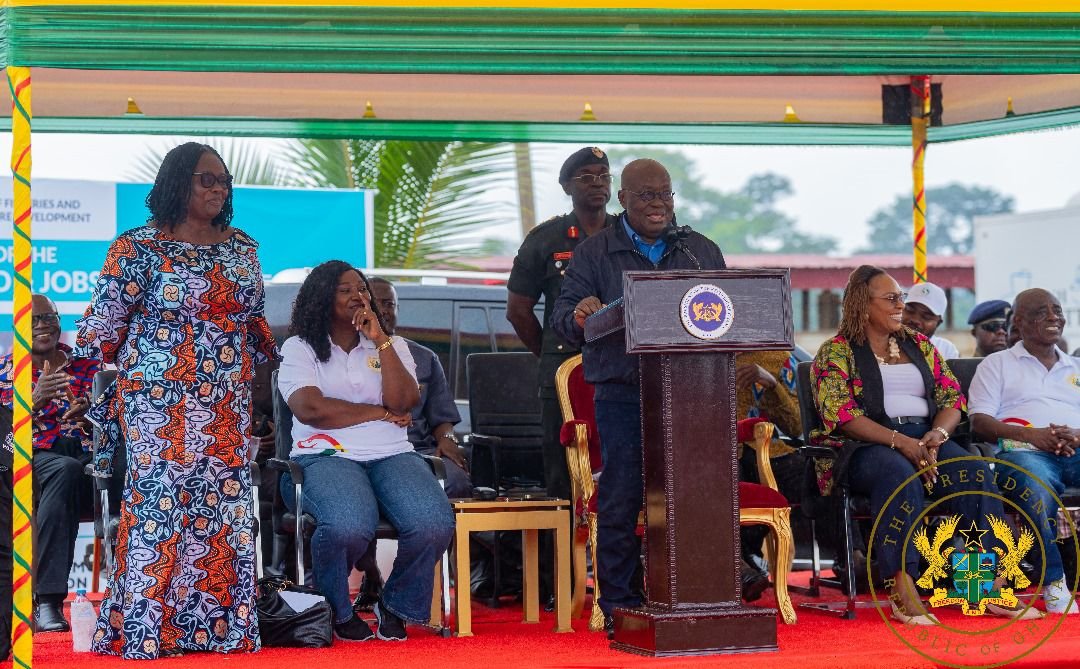
In a groundbreaking event held on Tuesday, July 30, 2024, at Nsuaem in the Central Region, President Nana Addo Dankwa Akufo-Addo unveiled the Aquaculture for Food and Jobs Programme.
Acknowledging the efforts of the Minister for Fisheries and Aquaculture Development, Hon. Mrs. Mavis Hawa Koomson, President Akufo-Addo praised her dedication and hands-on approach.
Her leadership has been instrumental in developing this project and implementing decisive initiatives such as the annual close season for fishing, which has restored fish stocks and promoted aquaculture as a viable economic sector.
President Akufo-Addo extended his gratitude to all partners, stakeholders, and dedicated teams working to make this project a reality, emphasizing the importance of collaboration in revolutionizing aquaculture in Ghana.
President Akufo-Addo emphasized the immense potential of aquaculture, stating that the sector is a critical component of the global food system.
As the programme was officially launched, President Akufo-Addo called on all Ghanaians to support this initiative, which promises to build a stronger, healthier, and more prosperous nation. “May God bless us all, and our homeland Ghana, and make her great and strong,” he concluded, marking the beginning of a new era in Ghana’s agricultural sector.
This initiative is a testament to the government’s commitment to sustainable development, food security, and job creation.
It marks a significant milestone in the nation’s agricultural sector, aiming to harness Ghana’s abundant water resources to provide sustainable livelihoods and enhance nutritional standards.
Aquaculture currently provides nearly half of the world’s fish supply, a figure that continues to grow as wild fish stocks diminish due to overfishing and environmental changes.
In Ghana, fish is a dietary staple, significantly contributing to the nation’s nutritional intake. However, the domestic supply falls short of the demand, resulting in substantial imports that strain the country’s foreign exchange reserves.
In 2022, Ghana’s fish requirement stood at 1.31 million metric tonnes, while domestic production was only 657,000 tonnes.
This shortfall necessitated the importation of 650,000 tonnes of fish, costing $311 million.
The Aquaculture for Food and Jobs Programme aims to bridge this gap by boosting local fish production, thereby reducing dependence on imports, conserving foreign exchange, and ensuring the availability of fresh, domestically-produced fish.
The programme’s impact extends beyond increasing fish production. It is poised to transform lives by creating thousands of jobs, particularly for the youth and women.
The initiative will provide training and support to aspiring fish farmers, equipping them with the skills and resources necessary for success.
It will also foster a network of fish farms across the country, enhancing Ghana’s capacity to meet the growing demand for fish and stimulating the development of related industries such as fish feed production, processing, and marketing.
By making fish more accessible and affordable, the programme will combat malnutrition and improve public health. Fish is a rich source of essential nutrients, and increasing its availability will significantly contribute to the nation’s nutritional standards.
This initiative is not only an economic driver but also a vital component in the fight against malnutrition.
The programme is being launched in partnership with R&B Farms Ltd., the largest inland fish farm in Ghana, operating on 26 hectares of land in Gomoa Central. Under this project, the government aims to train 10,000 youth in small-scale fish farming.
The ripple effect of this initiative is expected to generate an additional 50,000 jobs along the aquaculture value chain, encompassing fish feed production, equipment supply, fish processing, marketing, and distribution.
President Akufo-Addo called on private investors to seize the opportunities presented by this programme, highlighting the substantial market for fish and fish products.
With the right investments, the aquaculture sector can be transformed into a major economic driver.
Research institutions and universities will play a crucial role in providing the knowledge and technological innovations needed to enhance productivity and sustainability.
Under this programme, the government will provide youth with training and skills development in fish farming.
They will receive tarpaulin cages, fingerlings, and fish feed as seed capital, enabling them to start profitable fish farming businesses within six months.
The launch of the Aquaculture for Food and Jobs Programme signifies a bold step towards a brighter future for Ghanaian youth and women.
It aims to meet fish consumption needs, reduce import dependency, and provide meaningful employment.
News
Philip Nai and Friends to hold 5th edition of Christmas party with kids
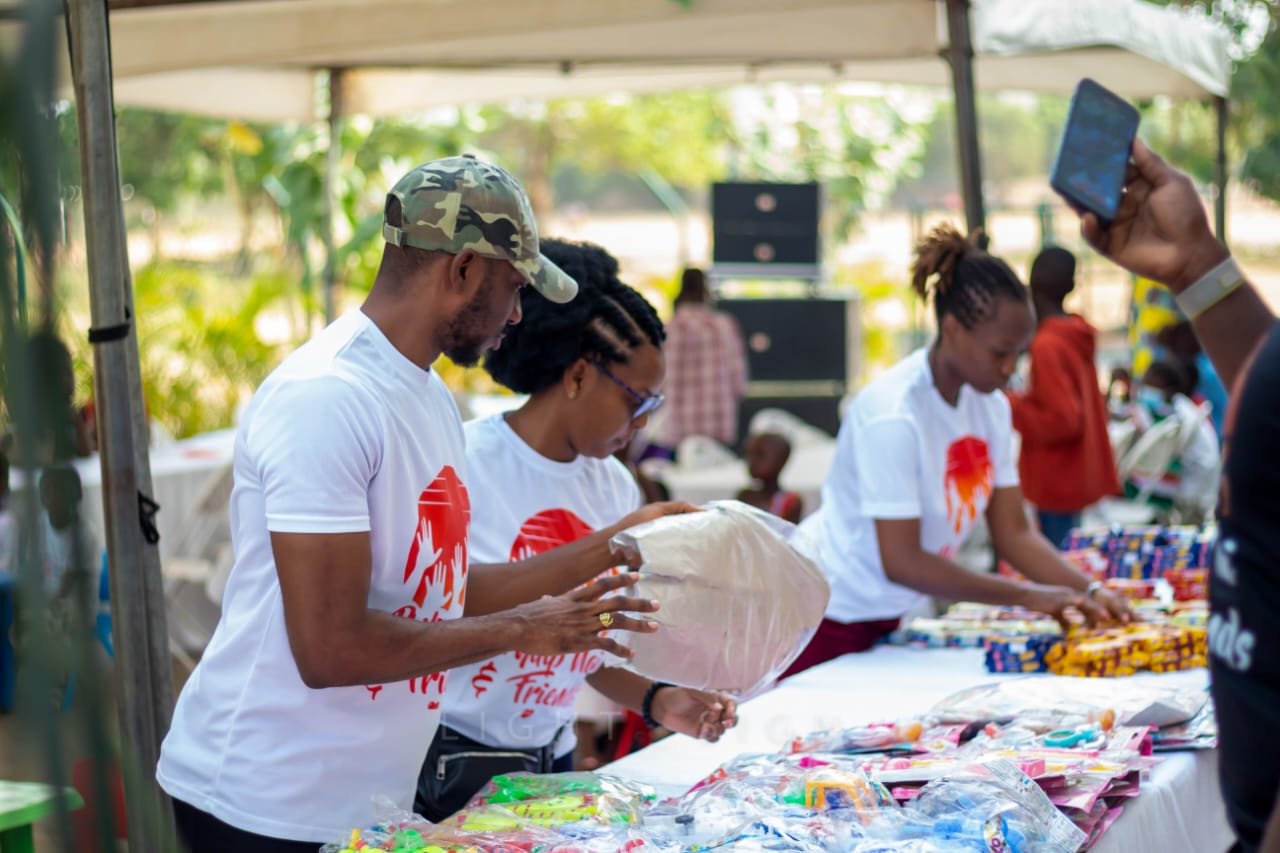
On the back of a successful get-together for children at the oncology unit of the Korle Bu Teaching Hospital, on December 23, 2023, Joy FM lead producer, Philip Nai and his friends are back with another event this year.
The 5th edition of Philip Nai and Friends will be held at the Agblezaa community on December 24, 2024.
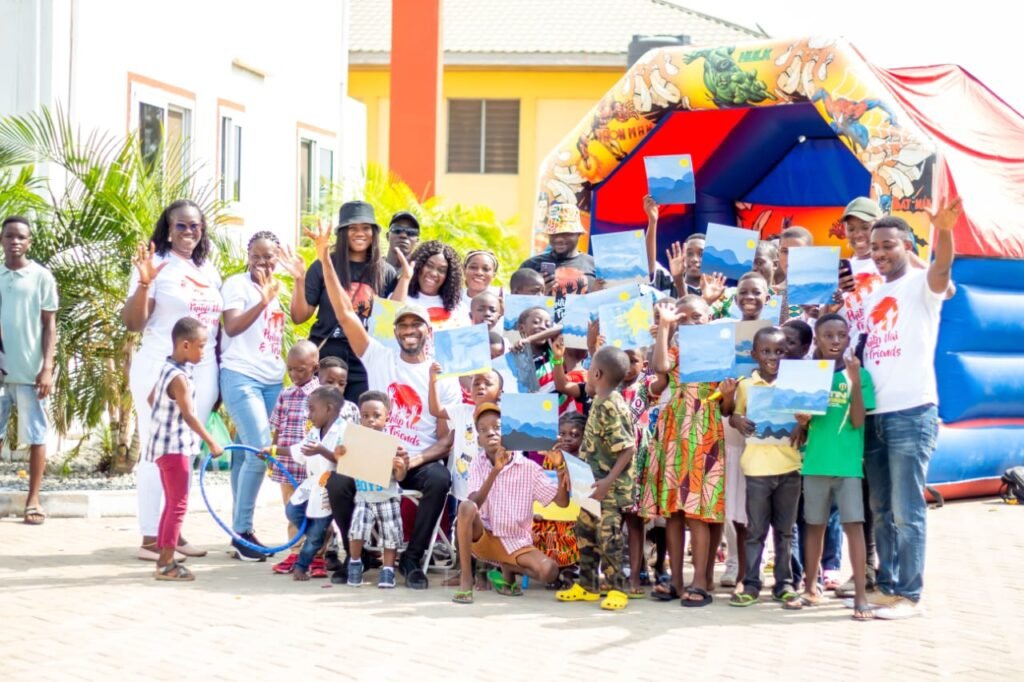
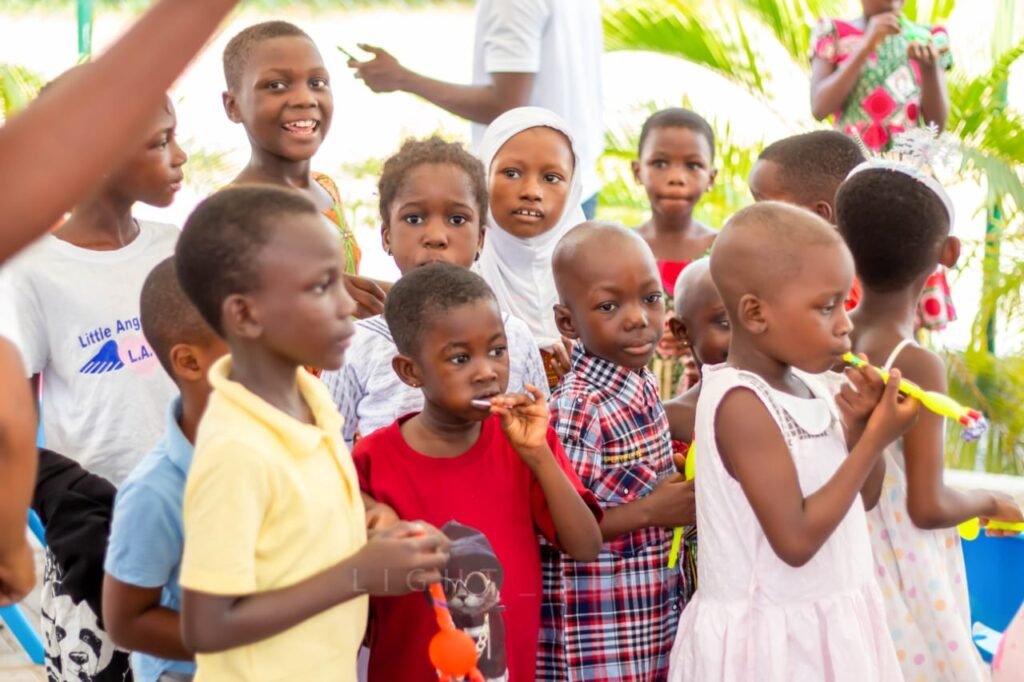
There will be activities such as musical performances, health screening, bottle flipping, Praise and Worship, Sip and Paint, Dancing Competition, Musical Chairs among others.
Donations of food items, bags of water, toiletries, clothes, learning materials will also be made. Individuals are encouraged to help this worthy cause by calling 0244735451.
Last year, musicians Nii Soul and Perez Musiq were present to lend their support to the programme.
There were also entertainment activities involving both the children and their mothers.
At the event, the Programmes Manager of Joy FM, Edem Knight-Tay shared a word of encouragement with the patients and their parents. She admonished them not to lose hope in God’s power to heal the kids of their sicknesses.
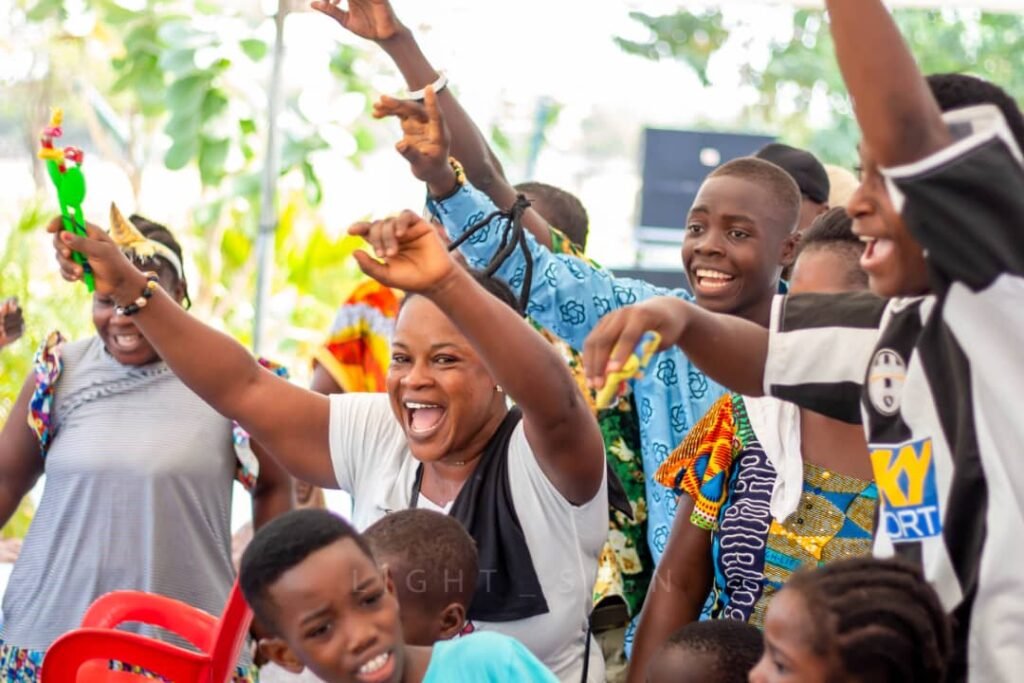
Also present were Dr. Grace Buckman, the Chief Executive Officer of Sonotech Medical and Diagnostic Centre; Ghana’s rep for Miss Universe 2023, Engracia Afua K. Mofuman; and Kwame Dadzie, the host of Showbiz A-Z on Joy FM.
Philip Nai and Friends is a charity project founded by Philip Nai, a philanthropist and one of Ghana’s astute and well-known producers at Joy FM, a subsidiary of The Multimedia Group.
Philip Nai and Friends is an annual project done mainly in collaboration with his friends from the media fraternity including celebrities and support from business and corporate Ghana to show love to the underprivileged by feeding, clothing, providing medical care and entertainment among others.
Philip Nai has for the past four years, led this project in various communities in Accra, every Christmas Eve and wishes to replicate same across the country in the coming years with all your support.
News
The Glow Up Season: Woman King, Crowned Queen of Miss Malaika Ghana 2024

The Miss Malaika Ghana 2024 pageant came to a spectacular end on Saturday, November 16 at the Palms Convention Centre in Accra.
After weeks of competition, 25-year-old Lucille Naakwaley King was crowned the winner in a dazzling finale that showcased beauty, talent, and female empowerment.

The glittering finale kicked off with co-host Bliss King introducing the top 10 contestants who came out in a spectacular display of cars by The Dream Collection, who ushered the ladies to the event in luxury cars, received on the red carpet amidst funfair and ultimately a grand entry unto the stage.
The ladies had a chance to showcase their poise and personality in a one-on-one conversation with the host, Regina Van-Helvert.
Based on votes accumulated leading up to the event, the field was then narrowed to the top 5 finalists: Marie. Delphine, Lucille, Cherise and Whitney.
In one of the most impactful segments of the night, the top 5 finalists delivered individual speeches on who their role model is, by highlighting their key achievements and how their journey inspires them on their path to becoming the women they aspire to be.
This portion gave insight into the contestants’ values, passions, and visions for creating positive change.
Lucille King chose Dr. Arikana Chihombori-Quao as her role model – an activist, diplomat, entrepreneur and founder of medical clinics.
In her impassioned speech, Lucille praised Dr. Chihombori-Quao’s many accomplishments, saying: “I want to say a big thank you, Dr Chihombori-Quoa. Thank you for proving that a woman can be many things at once. And for not only empowering me by what you say, but by what you do and who you are as a strong, female Pan-African advocate.”
This choice of role model highlighted Lucille’s own ambitions to be a multi-faceted leader and champion for women’s empowerment across Africa.
The Judging Panel
Selecting a winner from such an accomplished group of finalists was no easy task. The Miss Malaika Ghana 2024 judging panel consisted of respected figures from entertainment, business, and pageantry: Ama O. Sarpong – Miss Malaika 2010 winner, now an oil and gas professional, Trudy Arnold – Miss Malaika 2009 runner-up, now CEO of Studio 7, Chris Attoh – Actor, television presenter, producer and film director and Kojo Soboh – CEO and founder of EMY Africa and Carbon AV.
This diverse panel brought expertise from various fields to evaluate the contestants on beauty, intelligence, talent, and potential for impact.
Crowning the Queen
The final segment of the night was what many termed ‘the make or break’ point for the top 5 delegates. Where they were put on the spot and asked questions by the judges pertaining to their individual speeches.
A few minutes after the final delegate said ‘thank you for the question’ and proceeded with her response, the judges made the final and ultimate decision which answered the lingering question of ‘Who wins what’?
20-year-old Cherise Nana Ama was announced second runner up and 24-year-old Fiakegbe Marie Juniore was called as the first runner up.
Then came the big moment – Lucille Naakwaley King was crowned Miss Malaika Ghana 2024! As the audience erupted in cheers, Lucille gracefully accepted the crown and began her reign as the newest ambassador for the Miss Malaika Ghana brand.
The evening also featured a talent competition among three finalists selected during pre-judging: Lucille, Nakiya, and Marie.
This segment allowed the ladies to showcase skills beyond beauty and public speaking. Lucille wowed the crowd with an energetic salsa dance routine.
Her precise footwork, fluid hand movements, and magnetic stage presence earned her the title of Miss Talent, as determined by the judges. This additional award highlighted Lucille’s well-rounded abilities and star power.
Between competition segments, the audience was treated to spectacular musical performances from some of Ghana’s top artists: Camidoh, Olivetheboy, LalixLola and an incredible dance performance by Dancegodloyd and his crew.
These entertaining acts kept the energy high throughout the night and showcased Ghana’s vibrant music scene alongside its beautiful and talented women.
In a post-win interview, Lucille reflected on what being crowned Miss Malaika Ghana 2024 means to her.
‘’Winning the crown means more to me than many may think. It means that I can more rigorously fulfil my purpose in life- helping people. I have always wanted to make changes, and improve people’s lives, but until now, it has felt like an improbability task. I am so grateful for the platform to help others, and I am looking forward to doing so via my first project which is aimed at children with Autism and Down syndrome,” she said.
according to her, “These children are isolated, misunderstood, neglected, and sometimes even ridiculed. I want to help change this. I want people to realize how worthy of love, or at the very least, respect and dignity children with these conditions are. I want to share their stories, to humanize them and show the country that they are different, yes, but still worthy and valuable.
’’
Miss Malaika Ghana is one of the country’s most prestigious beauty pageants, organized annually by Charterhouse Productions. More than just a beauty contest, Miss Malaika Ghana aims to discover, nurture and promote talented young Ghanaian women.
The competition emphasizes: Intelligence and eloquence, leadership potential, commitment to community service, celebration of African beauty and culture amongst others.
Participants of Miss Malaika Ghana often go on to successful careers in business, media, and public service.
The pageant provides a launching pad for young women to make their mark on Ghana and beyond.
The 2024 edition of Miss Malaika Ghana was proudly brought to you by Club Shandy, JAC by Tryton Motors, Brussels Airlines, Big Blue Resort, The Pinnacle Apartments, Your Cruise People, airing on Joy Prime TV, GHOne TV, DGN TV, MX24 TV, LifeStyle TV, and powered by Charterhouse















